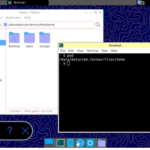
Semplici dialoghi in inglese con parallela traduzione in italiano. Questi file sono importanti per chi sta iniziando da poco a praticare la lingua inglese. Imparare i termini e le regole di questi dialoghi permetterà in poco tempo di affrontare le semplici comunicazioni in inglese.
Present Simple (4 dialoghi in italiano ed inglese)
Dialogo 1a:
| Domanda (A) / Question (A) | Risposta (B) / Answer (B) |
|---|---|
| 1. A: A che ora ti alzi? / What time do you get up? | B: Mi alzo alle 7.30. / I get up at half past seven. |
| 2. A: A che ora fai colazione? / What time do you have breakfast? | B: Faccio colazione alle 8.10. / I have breakfast at ten past eight. |
| 3. A: A che ora esci di casa? / What time do you leave home? | B: Esco di casa alle 8.20. / I leave home at twenty past eight. |
| 4. A: A che ora pranzi? / What time do you have lunch? | B: Pranzo alle 12.45. / I have lunch at a quarter to one. |
| 5. A: A che ora torni a casa? / What time do you get home? | B: Torno a casa alle 16.50. / I get home at ten to five. |
| 6. A: A che ora ceni? / What time do you have dinner? | B: Ceno alle 20 in punto. / I have dinner at eight on the dot. |
| 7. A: Cosa fai dopo cena? / What do you do after dinner? | B: Leggo il giornale. / I read the newspaper. |
| 8. A: A che ora vai a letto? / What time do you go to bed? | B: Vado a letto alle 23.30 / I go to bed at half past eleven. |
Dialogo 1b:
| Domanda (A) / Question (A) | Risposta (B) / Answer (B) |
|---|---|
| 1. A: A che ora si alza tua sorella? / What time does your sister get up? | B: Si alza alle 7.30. / She gets up at half past seven. |
| 2. A: A che ora fa colazione tua sorella? / What time does your sister have breakfast? | B: Fa colazione alle 8.10. / She has breakfast at ten past eight. |
| 3. A: A che ora esce di casa tua sorella? / What time does your sister leave home? | B: Esce di casa alle 8.20. / She leaves home at twenty past eight. |
| 4. A: A che ora pranza tua sorella? / What time does your sister have lunch? | B: Pranza alle 12.45. / She has lunch at a quarter to one. |
| 5. A: A che ora torna a casa tua sorella? / What time does your sister get home? | B: Arriva a casa alle 16.50. / She gets home at ten to five. |
| 6. A: A che ora cena tua sorella? / What time does your sister have dinner? | B: Cena alle 20 in punto. / She has dinner at eight on the dot. |
| 7. A: Cosa fa dopo cena tua sorella? / What does your sister do after dinner? | B: Legge il giornale. / She reads the newspaper. |
| 8. A: A che ora va a letto tua sorella? / What time does your sister go to bed? | B: Va a letto alle 23.30 / She goes to bed at half past eleven. |
Dialogo 1c:
| Domanda (A) / Question (A) | Risposta (B) / Answer (B) |
|---|---|
| 1. A: Cosa fai nel tempo libero? / What do you do in your free time? | B: Mi piace leggere ed ascoltare la musica. / I like reading and listening to music. |
| 2. A: Cosa mangi a colazione? / What do you have for breakfast? | B: Mangio dei biscotti con latte. / I have some biscuits and milk. |
| 3. A: Ogni quanto vai al cinema? / How often do you go to the cinema? | B: Vado al cinema due volte al mese. / I go to the cinema twice a month. |
| 4. A: Dove passi le vacanze? / Where do you spend your holidays? | B: Passo le vacanze in montagna. / I spend my holidays in the mountains. |
| 5. A: A che ora arrivi a casa? / What time do you get home? | B: Arrivo a casa sempre dopo le 19. / I always get home after seven. |
| 6. A: A che ora vai a letto? / What time do you go to bed? | B: Di solito vado a letto dopo le 23.30. / I usually go to bed after half past eleven. |
| 7. A: Per quale squadra fai il tifo? / What team do you support? | B: Non faccio il tifo per nessuna squadra. / I don’t support any team. |
| 8. A: Ogni quanto cucini? / How often do you cook? | B: Cucino una volta al giorno. / I cook once a day. |
Dialogo 1d:
| Domanda (A) / Question (A) | Risposta (B) / Answer (B) |
|---|---|
| 1. A: Ogni quanto cucina tuo padre? / How often does your father cook? | B: Cucina due volte al giorno. / He cooks twice a day. |
| 2. A: A che ora fai colazione? / What time do you have breakfast? | B: Faccio colazione alle 8.10. / I have breakfast at ten past eight. |
| 3. A: A che ora esce di casa tuo padre? / What time does your father leave home? | B: Esce di casa alle 8.20. / He leaves home at twenty past eight. |
| 4. A: Ogni quanto vai al cinema? / How often do you go to the cinema? | B: Vado al cinema due volte al mese. / I go to the cinema twice a month. |
| 5. A: Per quale squadra fa il tifo tuo padre? / What team does your father support? | B: Non fa il tifo per nessuna squadra. / He doesn’t support any team. |
| 6. A: A che ora ceni? / What time do you have dinner? | B: Ceno tra le 20 e le 21. / I have dinner between eight and nine. |
| 7. A: Cosa fa dopo cena tuo padre? / What does your father do after dinner? | B: Legge il giornale. / He reads the newspaper. |
| 8. A: A che ora vai a letto? / What time do you go to bed? | B: Vado a letto alle 23.30. / I go to bed at half past eleven. |
Past Simple (4 dialoghi in italiano ed inglese)
Dialogo 2a / Dialogue 2a:
| Domanda (A) / Question (A) | Risposta (B) / Answer (B) |
|---|---|
| 1. A: A che ora ti sei alzato ieri? / What time did you get up yesterday? | B: Mi sono alzato alle 7.30. / I got up at half past seven. |
| 2. A: A che ora hai fatto colazione ieri? / What time did you have breakfast yesterday? | B: Ho fatto colazione alle 8.10. / I had breakfast at ten past eight. |
| 3. A: A che ora sei uscito di casa ieri? / What time did you leave home yesterday? | B: Sono uscito di casa alle 8.20. / I left home at twenty past eight. |
| 4. A: A che ora hai pranzato ieri? / What time did you have lunch yesterday? | B: Ho pranzato alle 12.45. / I had lunch at a quarter to one. |
| 5. A: A che ora sei tornato a casa ieri? / What time did you get home yesterday? | B: Sono tornato a casa alle 16.50. / I got home at ten to five. |
| 6. A: A che ora hai cenato ieri? / What time did you have dinner yesterday? | B: Ho cenato alle 20 in punto. / I had dinner at eight on the dot. |
| 7. A: Cosa hai fatto dopo cena ieri? / What did you do after dinner yesterday? | B: Ho letto il giornale. / I read the newspaper. |
| 8. A: A che ora sei andato a letto ieri? / What time did you go to bed yesterday? | B: Sono andato a letto alle 23.30. / I went to bed at half past eleven. |
Dialogo 2b / Dialogue 2b:
| Domanda (A) / Question (A) | Risposta (B) / Answer (B) |
|---|---|
| 1. A: A che ora si alza di solito tua sorella? / What time does your sister usually get up? | B: Si alza alle 7.30. / She gets up at half past seven. |
| 2. A: A che ora si è alzata domenica? / What time did she get up on Sunday? | B: Si è alzata alle 8. / She got up at eight. |
| 3. A: A che ora esce di casa di solito tua sorella? / What time does your sister usually leave home? | B: Esce di casa alle 8.20. / She leaves home at twenty past eight. |
| 4. A: A che ora è uscita di casa domenica? / What time did she leave home on Sunday? | B: È uscita di casa alle 12.45. / She left home at a quarter to one. |
| 5. A: Dove pranza di solito tua sorella? / Where does your sister usually have lunch? | B: Pranza al lavoro alle 13.15 / She has lunch at work at a quarter past one. |
| 6. A: Dove ha pranzato domenica? / Where did she have lunch on Sunday? | B: Ha pranzato a casa alle 13.30 / She had lunch at home at half past one. |
| 7. A: Cosa fa dopo cena tua sorella? / What does your sister do after dinner? | B: Legge il giornale / She reads the newspaper. |
| 8. A: Cosa ha fatto dopo cena domenica? / What did she do after dinner on Sunday? | B: È andata al cinema con un suo amico / She went to the cinema with a friend of hers. |
Dialogo 2c / Dialogue 2c:
| Domanda (A) / Question (A) | Risposta (B) / Answer (B) |
|---|---|
| 1. A: Ciao, Bob. Come stai? / Hi, Bob. How are you? | B: Ciao, Ann. Sto bene. Hai passato una buona estate? / Hi, Ann. I’m well. Did you have a good summer? |
| 2. A: Si, sono stata in Scozia con una mia amica. / Yes, I went to Scotland with a friend of mine. | B: Beata te! Ti sei divertita? / Lucky you! Did you enjoy yourself? |
| 3. A: Mi sono divertita tantissimo. / I enjoyed myself very much. | B: Quanto tempo siete rimaste? / How long did you stay? |
| 4. A: Siamo rimaste tre settimane. / We stayed three weeks. | B: Siete andate in treno o in aereo? / Did you go by train or by plane? |
| 5. A: Siamo andate in macchina. / We went by car. | B: Cose ti è piaciuto di più? / What did you like most? |
| 6. A: Mi sono piaciute le isole di più. / I liked the islands most. | B: Quanto avete speso? / How much did you spend? |
| 7. A: Non abbiamo speso molto, per fortuna. / We didn’t spend much, fortunately. | B: Ti va di andare a prendere un caffé? / Do you fancy going for a coffee? |
| 8. A: Mi piacerebbe tantissimo. / I’d love to. | B: Andiamo! / Let’s go! |
Dialogo 2d / Dialogue 2d:
Ecco il Dialogo 2d presentato in una tabella con le versioni in italiano e inglese:
Dialogo 2d / Dialogue 2d:
| Domanda (A) / Question (A) | Risposta (B) / Answer (B) |
|---|---|
| 1. A: Quanto tempo ci avete messo? / How long did you take? | B: Ci abbiamo messo un paio d’ore. / We took a couple of hours. |
| 2. A: Quante partite hai vinto l’anno scorso? / How many matches did you win last year? | B: Ho vinto almeno 10 partite. / I won at least ten matches. |
| 3. A: Quanto pane hanno mangiato? / How much bread did they eat? | B: Hanno mangiato almeno 3 fette ciascuno. / They ate at least three slices each. |
| 4. A: Ogni quanto venivate a Roma? / How often did you come to Rome? | B: Venivamo tutti gli anni in estate. / We came every year in summer. |
| 5. A: Quando siete partiti? / When did you leave? | B: Siamo partiti l’altro ieri. / We left the day before yesterday. |
| 6. A: Come si è rotto il bicchiere? / How did the glass break? | B: Si è rotto perché l’ho fatto cadere. / It broke because I dropped it. |
| 7. A: Perché hai comprato il libro? / Why did you buy the book? | B: L’ho comprato perché ho perso il mio. / I bought it because I lost mine. |
| 8. A: Dove avete visto il mio libro? / Where did you see my book? | B: L’abbiamo visto sul letto 5 minuti fa. / We saw it on the bed five minutes ago. |
Present Continuous (4 dialoghi in italiano ed inglese)
Dialogo 3a / Dialogue 3a:
| Domanda (A) / Question (A) | Risposta (B) / Answer (B) |
|---|---|
| 1. A: A che ora vi alzate domani? / What time are you getting up tomorrow? | B: Ci alziamo alle 7.30. / We’re getting up at half past seven. |
| 2. A: A che ora fate colazione domani? / What time are you having breakfast tomorrow? | B: Facciamo colazione alle 8.10. / We’re having breakfast at ten past eight. |
| 3. A: A che ora partite domani? / What time are you leaving tomorrow? | B: Partiamo alle 8.20. / We’re leaving at twenty past eight. |
| 4. A: Cosa vedete domani mattina? / What are you seeing tomorrow morning? | B: Vediamo il museo e la piazza principale. / We’re seeing the museum and the main square. |
| 5. A: Dove pranzate domani? / Where are you having lunch tomorrow? | B: Pranziamo in un paesino. / We’re having lunch in a small town. |
| 6. A: Dove andate domani pomeriggio? / Where are you going tomorrow afternoon? | B: Andiamo a vedere un castello lì vicino. / We’re going to see a castle nearby. |
| 7. A: A che ora cenate domani sera? / What time are you having dinner tomorrow evening? | B: Che io sappia, ceniamo alle 20.30. / As far as I know, we’re having dinner at half past eight. |
| 8. A: Dove passate la notte domani sera? / Where are you spending the night tomorrow evening? | B: Passiamo la notte in un albergo a 4 stelle. / We’re spending the night in a four-star hotel. |
Dialogo 3b / Dialogue 3b:
| Domanda (A) / Question (A) | Risposta (B) / Answer (B) |
|---|---|
| 1. A: Ciao, Bob. Da quanto tempo! Come stai? / Hi, Bob. Long time no see! How are you? | B: Ciao, Ann. Sto bene. Tu cosa fai ora? / Hi, Ann. I’m well. What are you doing now? |
| 2. A: Lavoro presso una società ora. / I’m working in a company now. | B: E dove vivi? / And where are you living? |
| 3. A: Vivo a Pisa. Mi sono trasferita un anno fa. / I’m living in Pisa. I moved a year ago. | B: Condividi o vivi da sola? / Are you sharing or are you living alone? |
| 4. A: Condivido con una mia vecchia amica. Tu cosa fai ora? / I’m sharing with an old friend of mine. What are you doing now? | B: Mi sono laureato un mese fa e cerco lavoro. / I graduated a month ago and I’m looking for work. |
| 5. A: Che tipo di lavoro cerchi? / What kind of work are you looking for? | B: Cerco lavoro all’estero. / I’m looking for work abroad. |
| 6. A: Vivi ancora a casa? / Are you still living at home? | B: Me ne sono andato di casa un anno fa ed ora vivo con alcuni miei amici. / I left home a year ago and now I’m living with some friends of mine. |
| 7. A: Ti va di andare a prendere un caffé? / Do you fancy going for a coffee? | B: Mi piacerebbe tantissimo. / I’d love to. |
| 8. A: Dove vogliamo andare? / Where shall we go? | B: Andiamo al bar dietro l’angolo. / Let’s go to the cafè round the corner. |
Dialogo 3d / Dialogue 3d:
| Domanda (A) / Question (A) | Risposta (B) / Answer (B) |
|---|---|
| 1. A: Vado al cinema con un mio amico stasera. Perché non vieni con noi? / I’m going to the cinema with a friend of mine this evening. Why don’t you come with us? | B: Mi piacerebbe tantissimo venire. A che ora vi incontrate? / I’d love to come. What time are you meeting? |
| 2. A: Ci incontriamo alle 20.15. / We’re meeting at a quarter past eight. | B: Viene anche Bob? / Is Bob coming too? |
| 3. A: L’ho chiamato dieci minuti fa. Ci raggiunge dopo il film. / I called him ten minutes ago. He’s joining us after the film. | B: E dove vi incontrate? / And where are you meeting? |
| 4. A: Ci incontriamo davanti al cinema. / We’re meeting outside the cinema. | B: Cosa fate dopo il film? / What are you doing after the film? |
| 5. A: Andiamo a mangiare una pizza. / We’re going for a pizza. | B: In quale pizzeria andate? / What pizzeria are you going to? |
| 6. A: Andiamo alla pizzeria accanto al cinema. / We’re going to the pizzeria next to the cinema. | B: Posso invitare anche Ann? / Can I invite Ann too? |
| 7. A: Certo. Se non riesce a venire al film, dille che incontriamo Bob alle 22.30 davanti alla pizzeria. / Of course. If she can’t make it to the movie, I’ll tell her that we’re meeting Bob at 10:30 PM in front of the pizzeria. | B: Va bene, glielo dirò. / All right, I’ll tell her. |
OTTIMO DOCUMENTO CON ALTRI ESEMPI
Dialogues in Present Simple – Page 45
Dialogues in Past Simple – Page 47
Dialogues in Present Continuous – Page 49
Dialogues in Present Perfect Simple – Page 51
Dialogues in Present Perfect Continuous – Page 53
Dialogues in Past Continuous – Page 55
Dialogues in Past Perfect Simple – Page 57
Dialogues in Past Perfect Continuous – Page 59
Dialogues in Future Tenses – Page 61
Dialogues on Invitations and Arrangements – Page 63
Dialogues on Conditionals – Page 65
Everyday Conversation – Page 67
More Everyday Conversation – Page 68
Dialogues on Travelling – Page 69



